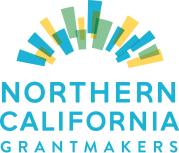We invite you to join us for a five-part peer workshop series taking place Thursday afternoons on September 23, October 7, October 21, November 4, and November 18. Sessions run 1:00 pm - 3:00 pm.
Are you struggling to understand how your role as a white board member or trustee is critical to advancing transformational change and moving toward a future in which race is not a predictor of security, opportunity, access to resources, and life outcomes?
Join a group of peers to deepen your understanding of how white supremacy manifests in philanthropic organizations and systems. We'll peel back historical layers to review how white supremacy was created and embedded in the philanthropic sector, impacting everything from grantmaking and relationships to management and decision-making. Then we'll explore concrete strategies and actions to help you show up as interrupters of the status quo in philanthropic leadership and decision-making. We’ll use a blend of reading/listening/watching relevant content, interactive activities, and embodied learning. Be prepared to be uncomfortable in service of developing a greater capacity to undo patterns that sustain white-dominant norms and perpetuate racism.
Alison and Leanna use a humanizing and healing approach that calls white people to be gentle and patient with ourselves while still choosing discomfort and taking meaningful action -a way of engaging that goes against everything white supremacy has taught us.
This five-part workshop is for:
Who: Trustees and board members of foundations who understand that racism / white supremacy is a problem that needs to be addressed, but they're not sure how to go about addressing it. You are feeling confused, overwhelmed, and intimidated by the idea of addressing how racism and white supremacy show up as you undertake board responsibilities. You’re ready to learn how you can use your positional power to act in solidarity with people of color in service of advancing systems that benefit people of every racial group, and especially those who are marginalized. If you have a desire to take anti-racist action in your role as a trustee, join us to grapple with white supremacy and how it shows up in your life and work.
Why: Despite best intentions, white trustees engage in philanthropy with limited understanding of how systemic oppression operates and, as a result, work from the same values and strategies that white supremacy promotes. Though committed to championing equity, it’s often unclear how to take principled and effective action that is supportive and respectful of foundation staff and of the nonprofits and communities they fund. White trustees can learn to dismantle white supremacy by exploring how it manifests in themselves and in the foundations they serve and become more effective agents for change.
Why an all-white space? It may seem counterintuitive to do antiracism work as an all-white group or with white facilitators. However, as many leaders, scholars, trainers, and activists of color have pointed out, it is the responsibility of white people to unlearn our internalized racism, and to help one another do so. Racial affinity spaces offer us the opportunity to speak honestly and bluntly, to support and coach one another, and to ask embarrassing questions without the risk of hurting or over-burdening people of color. And while Alison and Leanna have learned tremendous amounts from people of color about racism, they both believe that it is up to us as white people to become experts in our own practice of unlearning it. For more on how white-only spaces contribute to racial justice, explore this brief overview from Dismantling Racism; A Resource Book for Social Change Organizations, this essay by Alex Vlasic, and this case study by Ali Michael and Mary C. Conger in Perspectives on Urban Education.
To maximize impact, we ask that two trustees per foundation participate in the workshop series together. Tickets include a five-part workshop series, plus one-hour coaching and consulting session with either Leannaor Alison, where you'll receive personalized support around your specific questions and needs. Coaching sessions will be scheduled after you attend the final workshop.
Workshop Series Goals:
-
Participants will deepen their understanding of the systems of white supremacy and reflect on how those systems show up in philanthropic and nonprofit culture.
-
Participants will identify concrete ways to show up as anti-racist leaders and interrupters of the status quo in philanthropy, in their roles as trustees.
-
Participants will identify specific action steps in their role in the philanthropic sector that apply their learning in service of disrupting systemic racism.
Session 1 (September 23) Objectives:
-
Create a brave space for participants to be vulnerable, set the stage for intimacy and connection, and express clear expectations for participation (including coaching and “buddy” system, and review how to use the Zoom platform.
-
Participants explore frameworks of power, privilege, and oppression and locate themselves within them.
Session 2 (October 7) Objectives:
-
Participants grapple with the historical creation of race (specifically whiteness), and how it has brought us to the current moment.
-
Participants discuss policies and systems that have both created modern philanthropy and upheld white supremacy in the U.S. over the last hundred+ years, and their present-day impact.
Session 3 (October 21) Objectives:
-
Participants explore how whiteness shows up in organizations / on teams, and reimagine alternatives that open up the possibility for more liberatory ways of working and being together.
-
Participants consider their individual role in upholding white supremacy through their role as trustees.
Session 4 (November 4) Objectives:
-
Participants will use equity-based leadership practices framework to identify concrete action steps toward racial equity.
-
Participants engage with CEOs and trustees who have been doing this work, highlighting challenges and lessons learned from their journey and answering questions from participants.
Session 5 (November 18) Objectives:
-
Participants present goals, commitments, and challenges for group feedback.
-
Participants plan collaboratively for the next steps, including follow-up coaching sessions.
